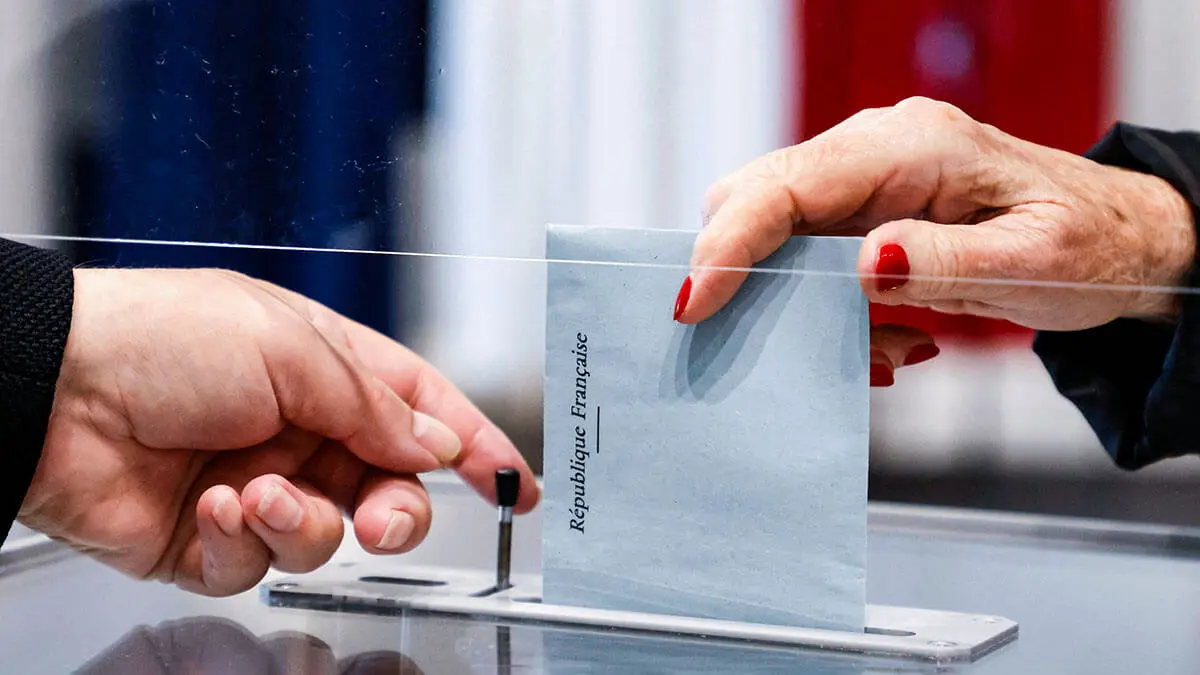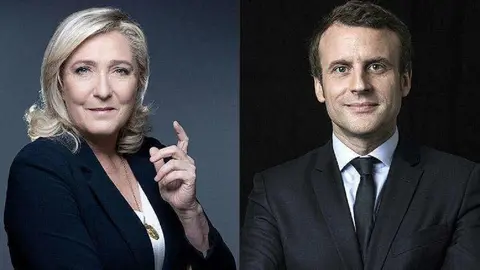Decisive ballot boxes for France... and for Europe

Emmanuel Macron, who has tried to set himself up as Europe's leader since the departure of Germany's Angela Merkel from power, now risks also becoming a minimised president. Endowed with important prerogatives by the 1958 Constitution, designed exclusively for General de Gaulle to lead the country out of the ungovernability of the Fourth Republic, the fundamental law remains in force, exploited to the full by all those who have succeeded each other in inhabiting the rooms of the Elysée Palace, some with notable advantage, so much so that the heads of state of this Fifth Republic have come to be described as "republican monarchs".
This time the president thought of "pulling a Sanchez", i.e. immediately calling new and different elections to supposedly catch off guard the parties that had been exhausted from the just-ended election campaign, and to cover up his own disaster in those elections in the process.
What Macron does seem to have achieved a priori is to further accentuate the polarisation of the country, which is once again fracturing between the extreme right of the RN and the extreme left of the NFP. If the former has succeeded in "melonising" its credo, i.e. watering down its political programme, just as Italy's head of government, Giorgia Meloni, has already done, the latter has quickly formed itself around the ultra-left-wing Jean-Luc Mélenchon's La France Insoumise (LFI). It has little to do with the Popular Front of 1936 with the then socialist leader Leon Blum at its head, who introduced the eight-hour working day and paid holidays.
Now renamed the New Popular Front, and bringing together the remnants of the Communist Party (PCF), the almost defunct Socialist Party (PSF) and the violent New Anti-Capitalist Party (NPA), it embodies to a large extent the most rancid of failed policies, but which in France still enjoy a certain credibility. This credibility is no longer granted by the old and disenchanted working class, nor by the young people who despair of slogans and slogans that reek of mothballs, and who are already the RN's main source of votes. Hence the NFP is increasingly pinning its own political survival on anti-Semitism, on the absence of censorship of growing jihadism and, not to be missed, on more subsidies and payoffs financed - of course - by new tax breaks "for the rich". France leads Europe in terms of tax burden and public spending, no less than 57%. A profligate spending that has not prevented the accelerated deterioration of public services, especially education and health, the two areas that are always used to justify a suffocating tax burden.
At the cost of a serious internal upheaval, the Republicans (LR), that is, the successor party to Gaullism, from Chirac to Sarkozy, has reached an electoral pact with Marine Le Pen's RN. It was its president, Ëric Ciotti, who won in court against the attempt by the leadership of his own party to oust him, who brokered the alliance, so that the right can not only counterbalance the motley bloc of the left, but also, if they win and manage to form a government, temper the RN's desire to spend.
As Bill Clinton said, "it's the economy, stupid", and in this area both the presumed prime minister if the RN wins, Jordan Bardella, and if one of those heading the NFP, Jean-Luc Mélenchon, the socialist Raphaël Glucksmann and even former president François Hollande, who has jumped on the bandwagon at the last minute, are all raising unaffordable economic programmes. Those who bother to quantify the cost of each of the promises are constantly proclaiming the absurdities that the candidates utter every time they open their mouths to promise a sharp increase in the minimum wage, the abolition of the retirement age at 64 and its return to 60, or even the reduction of France's contribution to the European Union's budget. France, with a public deficit of 340 billion euros and a debt ballooning to almost three trillion euros (one trillion of it under Macron), is more likely to implement some austerity than to keep promising stormy downpours of money.
Predictably, such promises are scaring entrepreneurs and investors. The latter have put the brakes on their plans to invest and expand their industries, while the former have been relentlessly assessing both personal and asset relocations. According to Patrick Martin, leader of the employers' association, "the potential return of punitive taxes, so characteristic of France, would inevitably lead to a further deterioration of our public finances and tax increases for households and businesses".
Emmanuel Macron, the man who wanted to set himself up as European leader, may become a "lame duck" in French politics. If he has to agree on a cohabitation with a Prime Minister and a government other than his own party or political movement, his strength will largely depend on how many of the 577 deputies in the French National Assembly sit under the acronym of his Renaissance. Polls give him no more than 22%, well below the 29% that the NFP would get or the 35% of the RN-LR union. That is for this first round, because for the second round, to be held on Sunday 7 July, only two candidates per constituency will be left in the running (if no one had obtained half plus one in the first round). And, although this increases the uncertainty, there could be a large majority of direct battles between the right and the left, with a substantial reduction or disappearance of Macronist liberal centrism.
Incidentally, it is symptomatic that this last week of the election campaign has triggered alarms about an outbreak of violence in the country. It is precisely the ministers of Macron's government who are multiplying their apocalyptic statements, predicting that the culprit of such an outbreak would be the extreme right of the RN. Not a single mention of the NFP, not even about the latest anti-Semitic attacks and aggressions perpetrated in the country. Perhaps this is the best proof that Macron fears the RN more for his presidential seat than the NFP.
Needless to say, the French elections will not only be decisive for France, but also for Europe as a whole. Its evident decline is not good news, nor would a landslide victory for either extreme. It would be a devastating message for a Europe that, despite its many shortcomings, mistakes and lapses, still aspires to play a role on the international stage, and to do so it needs more than ever to maintain a unity of conviction and action in the face of the threats it faces.


